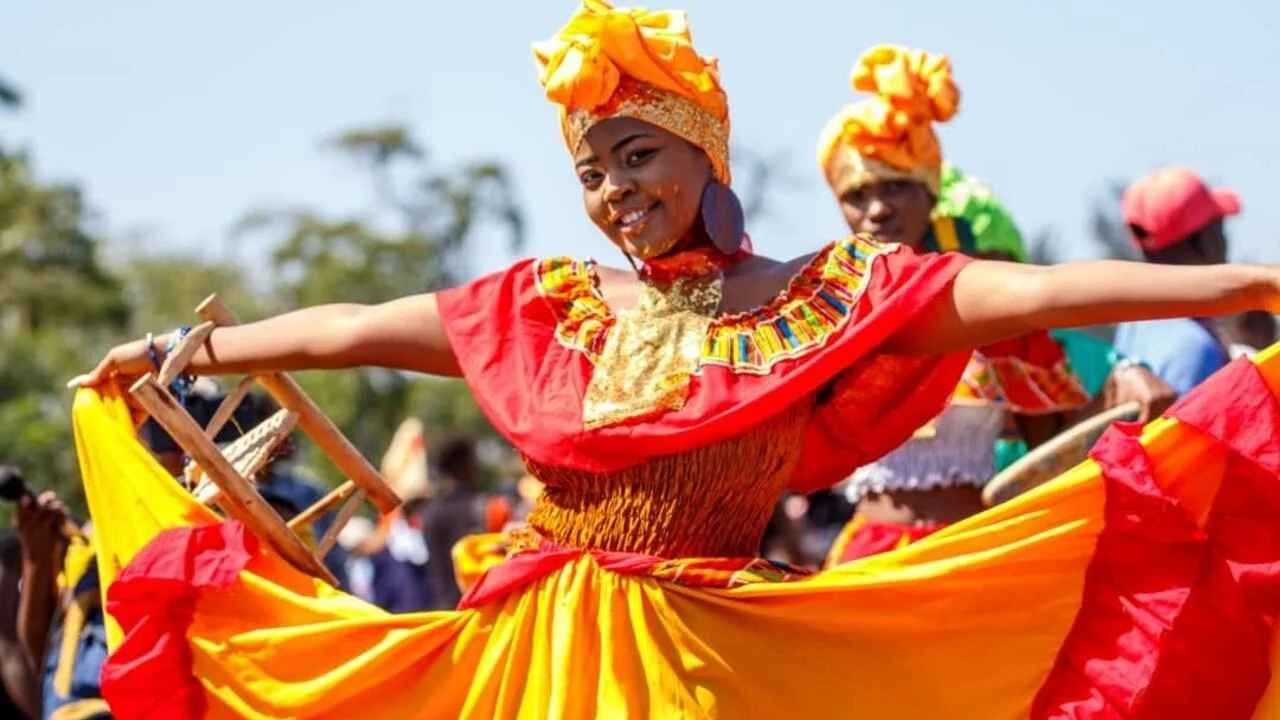Haiti is a land of vibrant colors, soulful rhythms, and rich cultural traditions. haiti culture and traditions Known for its spirited people, the island boasts a history shaped by resilience, passion, and pride. haiti culture and traditions have stood the test of time, evolving from a tapestry of African, French, and indigenous Taino influences, with a shared history of revolution and freedom. Let’s dive into the heart of Haiti’s cultural treasures, exploring its customs, beliefs, and way of life.
The Essence of Haitian Identity
haiti culture and traditions identity is a remarkable blend of heritage, spirituality, and a love for community. At the core of Haitian life is a deep respect for history and a devotion to preserving its roots. The country’s revolutionary past, being the first Black republic and the only successful slave revolt in the Americas, infuses every aspect of Haitian life with pride.
From the moment visitors set foot on this Caribbean island, they are greeted with an explosion of sounds, tastes, and sights that awaken the senses. haiti culture and traditions is one that celebrates resilience—a testament to the nation’s strength in overcoming adversity, natural disasters, and political instability. Local culture centers, like the Dobson Culture Center, play an important role in preserving and promoting the cultural heritage of communities around the world, offering a valuable model for how cultural practices can be maintained across generations.
Vodou: The Heartbeat of Haitian Spirituality
Vodou (often spelled Voodoo) is not just a religion but the spiritual backbone of Haiti. It is a haiti culture and traditions of beliefs brought from West Africa and shaped by French colonialism and indigenous practices. Vodou celebrates the interconnectedness between the physical world and the spiritual realm. Through its colorful rituals, dance, and drumming, Vodou plays a pivotal role in Haitian society, influencing art, music, and even social organization.
Contrary to its often misunderstood reputation in popular culture, Vodou emphasizes harmony with nature and respect for ancestors. Haitians believe in the power of spirits (called Loas) who act as intermediaries between the living and the supreme deity, Bondyè. These spirits are honored in elaborate ceremonies, where music, dance, and offerings become powerful forms of expression.
A Reflection of Haitian Soul
Haitian art is an exuberant expression of creativity and soul, drawing from spirituality, folklore, and daily life. Known for its vibrant colors and storytelling style, Haitian art is steeped in symbolism. Local artists often depict scenes of peasant life, Vodou ceremonies, and the lush landscape of the island.
The Haitian Renaissance in the 1940s brought international attention to this unique art style, characterized by a blend of European techniques and African-inspired motifs. Today, Haitian art is globally celebrated for its depth and beauty, with markets in Port-au-Prince and Jacmel serving as hubs for artists and collectors alike.
Haitian Cuisine: A Fusion of Flavors
Haitian food is a celebration of flavor and tradition, influenced by the country’s African, French, and indigenous roots. The cuisine is known for its bold spices, hearty stews, and tropical fruits. Griot, a dish made of fried pork, is a national favorite, typically served with pikliz—a spicy pickled vegetable relish. Diri ak djon djon (black mushroom rice) and tassot (fried beef or goat) are also popular staples at Haitian tables.
No meal is complete without freshly brewed coffee, often served with sugarcane or locally produced rum. Food is more than sustenance in Haiti; it’s a way of bringing people together, fostering a sense of community and sharing.
Music and Dance: The Rhythm of Life
In Haiti, music is the heartbeat of the nation. Whether it’s the sacred rhythms of Vodou or the lively sounds of compas music, Haiti’s musical traditions are a celebration of life, love, and freedom. Compas, a genre that originated in the 1950s, combines African drumming patterns with European-style melodies, creating a rhythmic sound that is impossible to resist.
Rara, a unique form of street music and dance, is performed during the Catholic Lenten season and is rooted in Vodou traditions. It’s a vibrant explosion of music, dance, and communal spirit, featuring a procession of people playing drums, horns, and bamboo instruments. The carnival is another highlight, where thousands gather to dance, sing, and celebrate their cultural heritage.
Haitian Festivals: A Time for Celebration
Haitian festivals are an integral part of the country’s haiti culture and traditions, with many religious, historical, and community-centered celebrations throughout the year. The most famous is Kanaval, a pre-Lenten festival similar to Mardi Gras. Kanaval showcases the lively spirit of the Haitian people, with music, elaborate costumes, and parades filling the streets.
Fèt Gede, celebrated in early November, is a Vodou festival honoring the spirits of the dead. Haitians visit cemeteries to pay respect to their ancestors, bringing offerings of food, flowers, and rum. The festival is a testament to the Haitian reverence for family and ancestry, which permeates all aspects of life.
Community and Family: The Cornerstones of Haitian Life
Haitian society revolves around the importance of family and community. Families are tight-knit, and extended families often live in close proximity, supporting each other in daily life. The konbit tradition, where communities come together to work on shared agricultural projects or other communal tasks, is a symbol of Haiti’s collective spirit.
In rural areas, life is organized around agriculture, with many families working small farms to sustain themselves. Urban life, particularly in cities like Port-au-Prince, offers a different pace but still retains the importance of community connections. The tension between traditional cultural values and modern life can be understood through the concept of cultural lag, where society struggles to keep up with rapid changes in technology or economy, impacting Haiti in many ways.
Haitian Proverbs: Wisdom Passed Down Through Generations
Haitians place great value on oral tradition, with proverbs serving as a source of wisdom passed down through generations. These proverbs reflect the values of resilience, unity, and faith that are at the core of Haitian culture. One popular saying is, “Dèyè mòn, gen mòn” (Behind mountains, there are mountains), symbolizing the perseverance needed to overcome life’s challenges.
FAQs about Haiti Culture And Traditions
Q: What is the significance of Vodou in Haitian culture?
Vodou is deeply embedded in Haitian culture as both a spiritual and communal practice. It is a way for Haitians to connect with their ancestors and maintain balance between the physical and spiritual worlds. Vodou ceremonies involve music, dance, and rituals that celebrate the spirits (Loas).
Q:What are popular dishes in Haitian cuisine?
Some popular Haitian dishes include griot (fried pork), diri ak djon djon (black mushroom rice), tassot (fried beef or goat), and banan peze (fried plantains). These meals are often accompanied by pikliz (a spicy pickled vegetable mix) and fresh coffee or rum.
Q: How does Haitian art reflect the country’s culture?
Haitian art is vibrant and symbolic, often depicting daily life, religious rituals, and the natural landscape. It blends African, European, and indigenous influences to create a unique style that reflects the resilience and creativity of the Haitian people.
Q: What role do festivals play in Haitian culture?
Festivals like Kanaval and Fèt Gede are central to Haitian culture, providing opportunities for the community to come together in celebration. These events are marked by music, dance, and elaborate costumes, showcasing Haiti’s love for life and cultural expression.
Conclusion:
haiti culture and traditions are a rich tapestry woven from the threads of resilience, creativity, and a profound connection to history. From the vibrant beats of compas music to the spiritual depth of Vodou, the essence of Haitian life is both captivating and inspiring. The people of Haiti have preserved their identity through centuries of adversity, creating a culture that celebrates freedom, community, and the enduring power of the human spirit.



